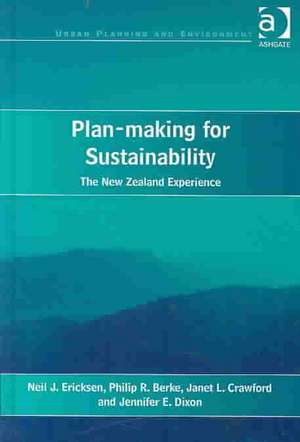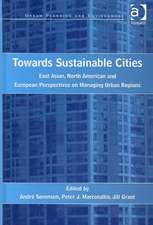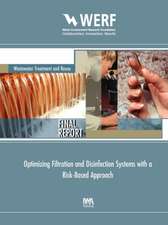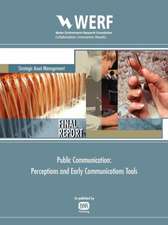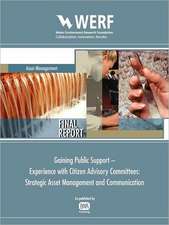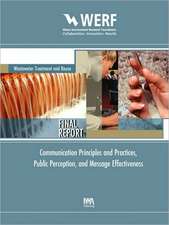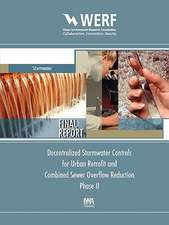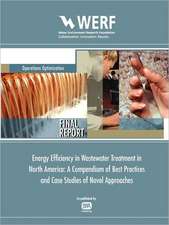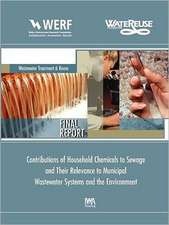Plan-making for Sustainability: The New Zealand Experience: Urban Planning and Environment
Autor Neil J. Ericksen, Philip R. Berke, Jennifer E. Dixonen Limba Engleză Hardback – 13 apr 2004
| Toate formatele și edițiile | Preț | Express |
|---|---|---|
| Paperback (1) | 299.52 lei 6-8 săpt. | |
| Taylor & Francis – 16 mai 2017 | 299.52 lei 6-8 săpt. | |
| Hardback (1) | 764.20 lei 6-8 săpt. | |
| Taylor & Francis – 13 apr 2004 | 764.20 lei 6-8 săpt. |
Din seria Urban Planning and Environment
- 16%
 Preț: 216.07 lei
Preț: 216.07 lei - 13%
 Preț: 338.33 lei
Preț: 338.33 lei - 13%
 Preț: 338.33 lei
Preț: 338.33 lei - 12%
 Preț: 299.52 lei
Preț: 299.52 lei - 17%
 Preț: 184.81 lei
Preț: 184.81 lei - 13%
 Preț: 338.33 lei
Preț: 338.33 lei - 13%
 Preț: 338.33 lei
Preț: 338.33 lei - 15%
 Preț: 87.71 lei
Preț: 87.71 lei -
 Preț: 369.73 lei
Preț: 369.73 lei -
 Preț: 469.34 lei
Preț: 469.34 lei - 12%
 Preț: 299.52 lei
Preț: 299.52 lei - 22%
 Preț: 324.16 lei
Preț: 324.16 lei - 16%
 Preț: 262.35 lei
Preț: 262.35 lei - 25%
 Preț: 772.42 lei
Preț: 772.42 lei - 17%
 Preț: 246.19 lei
Preț: 246.19 lei -
 Preț: 469.34 lei
Preț: 469.34 lei -
 Preț: 384.86 lei
Preț: 384.86 lei -
 Preț: 389.66 lei
Preț: 389.66 lei - 17%
 Preț: 245.11 lei
Preț: 245.11 lei - 10%
 Preț: 311.80 lei
Preț: 311.80 lei - 18%
 Preț: 1013.72 lei
Preț: 1013.72 lei
Preț: 764.20 lei
Preț vechi: 1027.40 lei
-26% Nou
Puncte Express: 1146
Preț estimativ în valută:
146.28€ • 153.68$ • 122.93£
146.28€ • 153.68$ • 122.93£
Carte tipărită la comandă
Livrare economică 12-26 martie
Preluare comenzi: 021 569.72.76
Specificații
ISBN-13: 9780754640660
ISBN-10: 0754640663
Pagini: 374
Dimensiuni: 156 x 234 x 25 mm
Greutate: 0.45 kg
Ediția:1
Editura: Taylor & Francis
Colecția Routledge
Seria Urban Planning and Environment
Locul publicării:Oxford, United Kingdom
ISBN-10: 0754640663
Pagini: 374
Dimensiuni: 156 x 234 x 25 mm
Greutate: 0.45 kg
Ediția:1
Editura: Taylor & Francis
Colecția Routledge
Seria Urban Planning and Environment
Locul publicării:Oxford, United Kingdom
Cuprins
Contents: Introduction: from Rio to RMA: great expectations. Part I: Approaches to Planning and Governance: Planning mandates: from theory to practice; Making plans: from theory to practice. Part II: Intergovernmental Planning in New Zealand: Central government: walking the talk; Regional government: a non-partner; Mãori interests: elusive partnership. Part III: Plan Quality and Capability Under the RMA: Regional councils: lightweight policy statements and limited capability; District councils: mixed results in planning and capability; Influencing factors: linking mandates, councils, capability and quality. Part IV: Local Case Studies: Far North District: resisting innovation; Queenstown Lakes District: development meets environment; Tauranga District: policy coherence on the coast; Tasman District: political populism; Conclusion: a decade on: unfulfilled expectations. Appendices: Key provisions of the RMA affecting local government functions; Methodology; Plan coding protocol; References cited; Index.
Notă biografică
Neil J. Ericksen is a Professor at the University of Waikato, New Zealand. Philip R. Berke is a Professor in the Department of City and Regional Planning at the University of North Carolina, USA. Dr Janet L. Crawford works for Planning Consultants Ltd (Auckland), New Zealand, and Jennifer E. Dixon is a Professor in the Department of Planning, University of Auckland, New Zealand.
Recenzii
'Plan-making for Sustainability provides a sobering review of New Zealand's experiment in mandating comprehensive planning. The authors bring a wealth of experience and data to provide a balanced, insightful, and highly readable assessment ...The book is essential reading for those who seek to understand the challenges of implementing intergovernmental planning mandates.' Professor Peter J. May, University of Washington, USA 'Neil Ericksen and colleagues have produced an important and fascinating evidence-based analysis of the challenges faced in implementing the pioneering New Zealand Resource Management Act. Their research approach and findings are of considerable relevance, internationally, for all those concerned with planning for sustainability.' Professor John Glasson, Oxford Brookes University, UK
Descriere
Around the introduction of Agenda 21 at Rio in 1991, some countries like the Netherlands and New Zealand were already leading the way with quite innovative approaches to environmental planning. Focusing on the New Zealand government's innovations in sustainable and environmental planning, particularly the Resource Management Act of 1991, this book highlights planning and governance under devolved and co-operative mandates.
